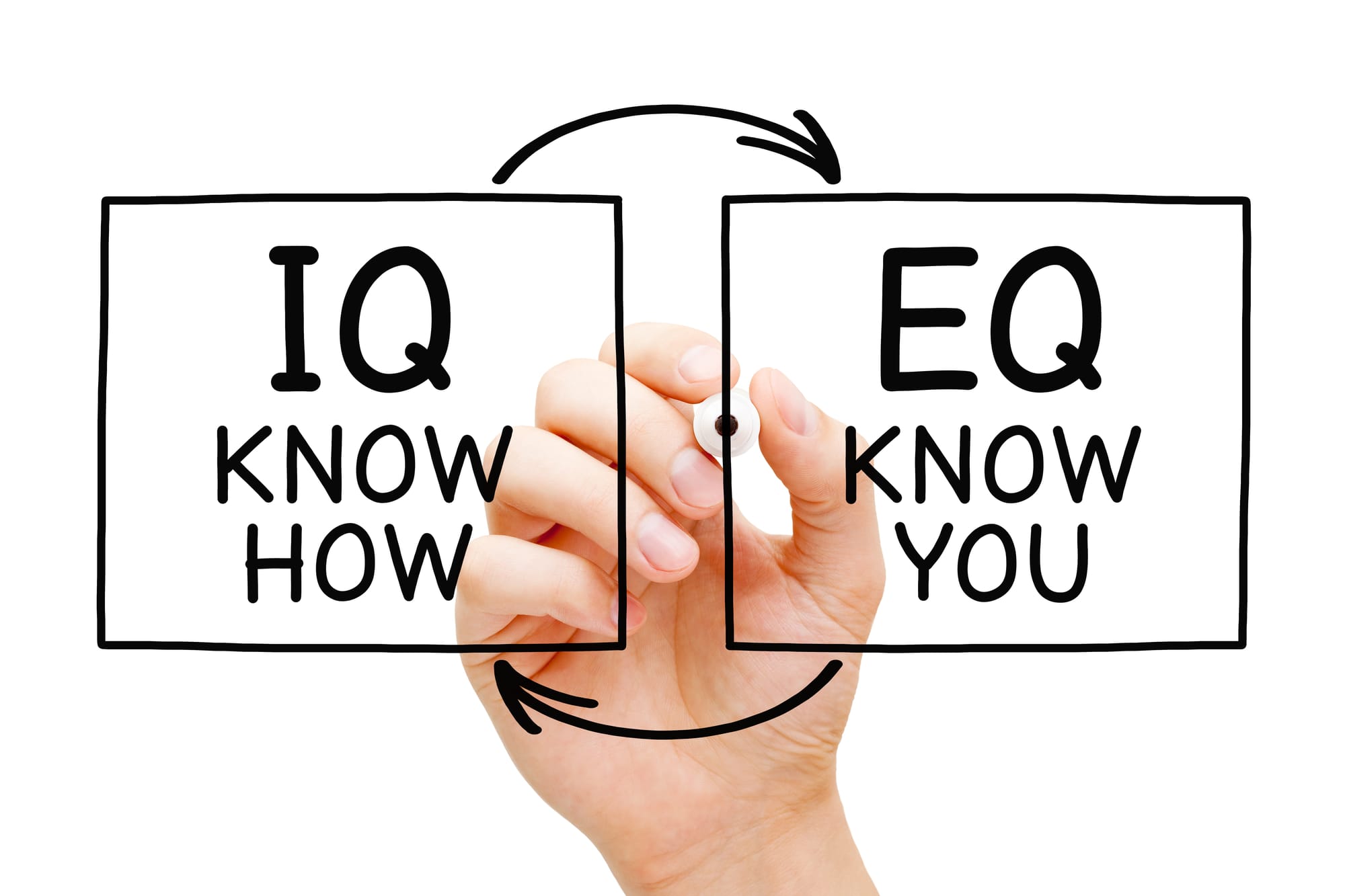What is emotional intelligence?

Jason Brien.
Emotional intelligence (EI) is defined as the capacity of individuals to recognise and differentiate between the emotions and feelings of themselves and others and to use their own emotions/feelings to self-regulate during times of stress, empathize with others, build strong familial and social relationships, communicate assertively, and positively regulate mental health. Emotional intelligence can be defined by attributes or skills in 4 key areas;
Self-regulation:
You have the capacity to regulate and manage your emotions and feelings during stressful and difficult times. Your emotions are not dependent on those around you and you are able to control compulsive behaviours. You are more open to new experiences and handle change well.
Self-awareness:
You have insight into your own emotions/feelings, are able to identify your strengths and weaknesses and are aware of how your emotions/feelings affect your thoughts and behaviours.
Social awareness:
You are aware of how your emotions and feelings impact upon others. You are aware of the needs of others and have the ability to empathize and display compassion. You are able to recognise and respond appropriately to social cues. You are more service oriented and may gain employment in the health fields or engage in community volunteer work.
Relationship management:
You can form and maintain appropriate and respectful relationships by utilising empathy, compassion, leadership and team working skills. You are good at managing conflict and others may seek your advice to help them to resolve arguments they may have with others.
Research has indicated that individuals that are high in EI tend to make better leaders, are more likely to gain and maintain employment, are better at schooling, have better mental health and are generally more satisfied in life. Additionally, people high in EI tend to be able to motivate themselves towards action internally rather than having their motivation being dependent upon external cues like money or friendships for example. You can improve your emotional intelligence in the following ways;
Pay attention to your emotions/feelings and behaviours:
Keeping mood and behaviour diaries can really help improve your EI. Most mood and behaviour diaries require that you record your emotions/feelings and/or behaviours at least twice a day. This can be achieved by setting an alarm at the same time points twice a day or at random time points twice a day. Mood and behaviour diaries can help people to view themselves objectively and recognise any patterns in emotions/feelings or behaviours that they may have otherwise missed.
Learn to take responsibility for your emotions/feelings:
It is very common to fall into the trap of disowning our emotions. Sometimes we blame others for how we feel rather than recognising that we are in control of our emotions. So, the next time you go to blurt out “you made me angry” or “its your fault I’m sad”, just remember that no one can make you feel anything. It’s your interpretation of events which ultimately dictate your emotions.
Learn emotional management techniques:
This can be as simple as deep breathing exercises, progressive muscle relaxation or more complex and courageous methods such as meditation or yoga. These activities can assist you to stay calm and in control of your emotions. Not just negative emotions either. It is possible to become overwhelmed with feelings of happiness and joy.
Learn the art of assertiveness:
Becoming more assertive will help you to communicate and negotiate more effectively with as you will be more aware of your likes and dislikes in terms of the outcomes you desire. By being assertive you are less likely to negotiate for less than you want because you are overwhelmed with fear.
Resources
George, J. M. (2000). Emotions and leadership: The role of emotional intelligence. Human relations, 53(8), 1027-1055.
George, J. M. (2000). Emotions and leadership: The role of emotional intelligence. Human relations, 53(8), 1027-1055.
Petrides, K. V., & Furnham, A. (2000). On the dimensional structure of emotional intelligence. Personality and individual differences, 29(2), 313-320.
Salovey, P., & Mayer, J. D. (1990). Emotional intelligence. Imagination, cognition and personality, 9(3), 185-211.